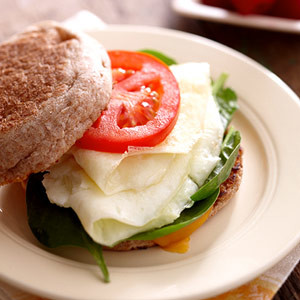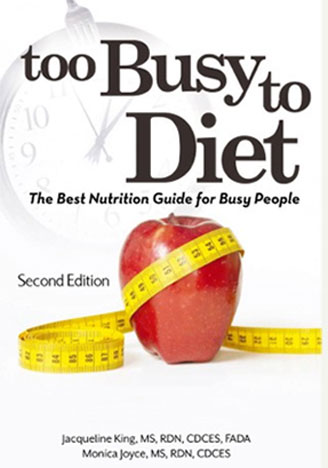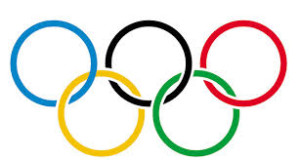Go for the GOLD!
in The Too Busy to Diet Blog on February 13, 2014
Written by Teri R. Belisle (Giordano), PharmD, RD, LDN.
Go for the GOLD…even if you have diabetes!
Does all the coverage of the Olympic Games have you dreaming of being an Olympian? Well having diabetes doesn’t mean you have to sit on the side lines. Just ask four-time Olympic cross-country skier, Kris Freeman, who has Type 1 Diabetes. After learning of his diagnosis in 2000 while training for the 2002 Olympics, and facing challenges with blood sugar control at the 2010 Olympic games, Kris is back to take on Sochi. Check out his story to learn more about Kris’s journey to the Olympic stage while battling diabetes.

Whether you are dreaming of being an Olympian or just want to learn more about achieving a healthy lifestyle, read on to learn some basic strategies that Olympic athletes, with and without diabetes, follow to keep their bodies in top performance shape.
1. Eat Breakfast EVERY DAY. The old saying is true; breakfast is the most important meal of the day. Breakfast literally means to “break the fast” which occurs overnight while you are sleeping. Eating breakfast within 30 minutes of waking helps fuel the body for the day and helps stabilize blood sugar levels. Eating breakfast also keeps your metabolism running at an optimal level which can help prevent fatigue and weight gain. For best results, make sure your breakfast consists of lean protein, whole grains, and fruits/vegetables. Here is an example of a healthy breakfast that is fit for an Olympian and is also diabetes-friendly and heart-healthy.
Recipe from Fitnessmagazine.com
Ingredients:
3 egg whites
1 whole wheat English muffin, toasted
1 slice low-fat provolone cheese
1 tomato slice
1/2 cup spinach leaves
Directions:
Scramble the egg whites. Slice and toast the English muffin while the eggs are cooking. Once toasted place the spinach, cheese, egg whites, and tomato slices on the muffin. For a little zest, add fresh ground pepper and a teaspoon of salsa. Pair this with a cup of your favorite fruit such a cantaloupe or mixed berries for a completely nutritious meal.
Nutrition:
Calories: 320 kcal, Fat: 4 grams, Cholesterol: 10 mg, Carbs: 38 grams, Protein: 21.8 grams

2. Eat small frequent meals
Olympic athletes fuel their bodies often to help prevent fatigue and injury. Eating small frequent meals helps to stabilize blood glucose levels and prevents overeating by reducing extreme hunger and uncontrollable cravings. Instead of eating your standard three meals a day, try eating 5 to 6 “mini meals” every 3 to 4 hours. For example, if you are consuming a 2,000 calorie per day diet, you can divide your day into 6 mini meals of about 350 calories each. Make sure to eat some type of lean protein with each meal and avoid foods high in sodium, fat, and sugar. Here is a helpful link for more information to get you started.
3. Hydrate often
Aside from quenching your thirst, water helps optimize bodily functions including brain, muscle, immune, and digestive functions. How much water you need varies slightly based on your body size, but in general most people require at least 2,000 ml of fluid per day. That’s at least 8- 8oz glasses of water. It is important to make sure you are drinking only sugar-free and calorie-free liquids. Also beware of sports drinks and various “diet” drinks that contain sodium. Sugar and sodium can make you thirstier and increase your blood pressure and blood sugar, and increase your risk for dehydration. Drinking plenty of water can actually help flush out toxins and byproducts, and help lower sodium and glucose levels in the blood.
I hope you are enjoying the 2014 Winter Olympics. Continue to follow our page (and “like” us on Facebook) and check out the Too Busy to Diet book for more helpful hints on leading a healthy life.
Buy the Too Busy to Diet book
Get your copy of the definitive diet reference guide and healthy eating book today. Stop reading those misleading fad diet books and read an easy to follow book on how to lose weight and keep it off from actual Registered Dietitians.

Recent Posts
- Barbeque Turkey Meatloaf
- Pescado a la Veracruzana
- Juicy Pork Chops
- Rotasserie Chicken Casserole
- Grilled Salmon & Blueberry Salad
